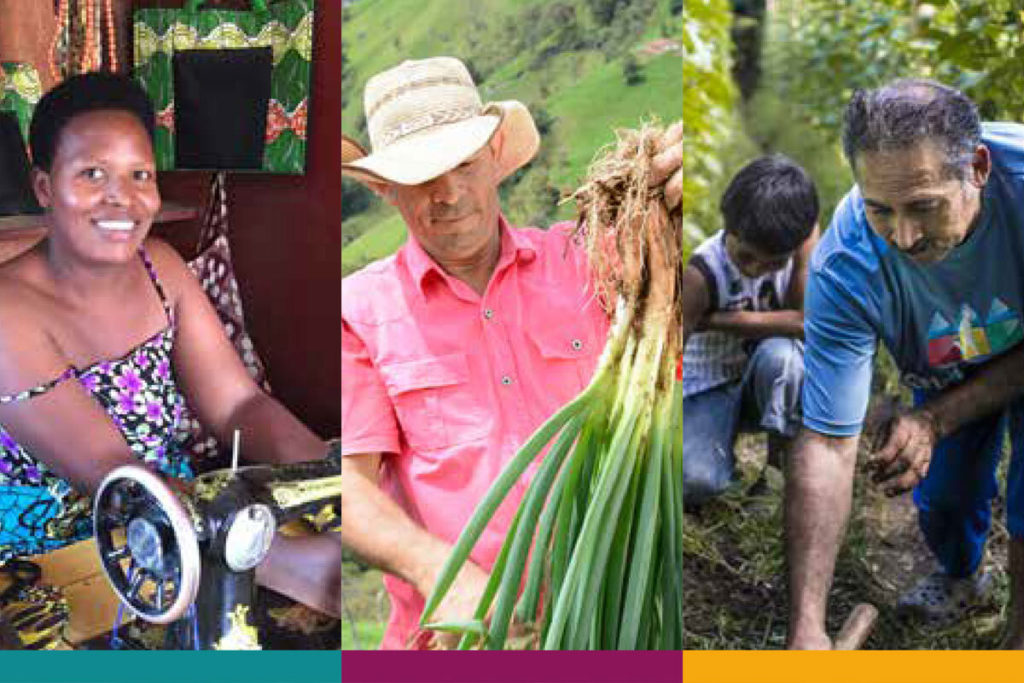
To celebrate the International Day of Peace, we looked at how three cooperatives are helping to maintain peace in Rwanda, Bosnia and Herzegovina and Guatemala.
In 2019 Cooperatives Europe published a report on the cooperative contributions to peace building and conflict resolution. Produced in the framework of the ICA-EU Partnership (#coops4dev), the research showcases 20 case studies from fourteen countries, covering different types and stages of conflicts. At the World Cooperative Congress this year, panellists from Parallel Session 3.2, Peace and Equality, on 2 December will engage participants in the important aspects of peace and equality. Here are cooperatives from three countries who are making a difference, as showcased in the 2019 report by Cooperatives Europe.
Buranga Cooperative: Unity for Peace
Rwanda continues to work on reconciliation after the brutal genocide in 1994 in which one million people, the majority members of the Tutsi minority ethnic group, lost their lives.
In spite of the country’s troubled past, they work together and support each other through. The cooperative is named after the village it was founded in; the word Buranga also means ‘beauty’ in Kinyarwanda.
The Buranga Cooperative is open to all women, in line with post-genocide national legislation and the cooperative principle of open membership. The women members say they joined the cooperative to earn a living. But having a common goal helps to unite them, restores peace, and contributes to the reconciliation process.
“If a cooperative member is sick, we will visit her and support her. We are a family. The cooperative has helped us unite, no matter whether we are survivors, perpetrators or whether we fled the country and then returned,” a Buranga Cooperative member is quoted saying in the report.
Cooperativa Agricola Insieme: Building bridges to avoid conflicts
In Bosnia and Herzegovina, Cooperativa Agricola Insieme in Bratunac, near Srebrenica, uses fruits grown by local families to make jams and nectars, under the branding Frutti di Pace (Fruits of Peace). The cooperative was set up in 2003 by a group of local women who believed job creation was key to reviving the territory in the aftermath of the Bosnian War (1992-1995).
It now provides work for 500 families in the territory and brings together people of different ethnicities and religions, helping to bridge divisions that fueled the conflict as well as the 1995 Bosnian Genocide.
Its members work together without asking whether the producer or the worker next to them is Muslim, Orthodox, Bosnian, Serb-Bosnian or Croat-Bosnian.
In true cooperative spirit, Italian cooperative federation Legacoop connected the Bosnian cooperative with large consumer cooperatives in Italy, which now sell its products.
Back in 2003 the number of returning refugees was very low. Due to the success of the project, Bratunac is now the area with the highest return of refugees in Bosnia post-war (30%).
Federación Comercializadora de Café Especial de Guatemala: Maintaining peace with a strong economy
In Guatemala, a country severely affected by the civil war fought between 1960 and 1996, a coffee federation is helping to heal the wounds of the past. Set up in 2006, the Federación Comercializadora de Café Especial de Guatemala (FECCEG) represents around 2,000 small farmers, a quarter of them women. The federation focuses on strengthening producers’ networks, increasing its members’ bargaining power and achieving fair prices for their agricultural products. The coffee beans are sorted, and dried by farmers before they are transferred to the central FECCEG warehouse to be dried, milled and stored. They are then marketed by FECCEG’s export company.
The federation has also created a range of value-added products such as tea, honey and chocolate. Economic stability is key to maintaining peace. The cooperative helps to create sustainable livelihoods for farmers while also promoting equality and respect between Guatemala’s different cultures and ethnicities.
These are just some examples of how cooperatives are contributing to peace building and conflict resolution. More case studies can be found in #Coops4Dev’s report.
Learn how cooperatives should be Committing to our Cooperative Identity … For Peace and Equality (session 3.2).
